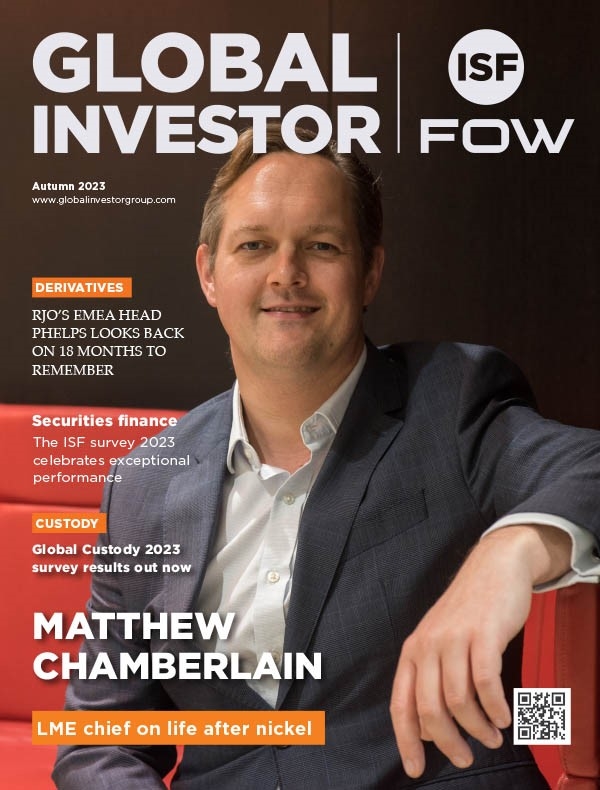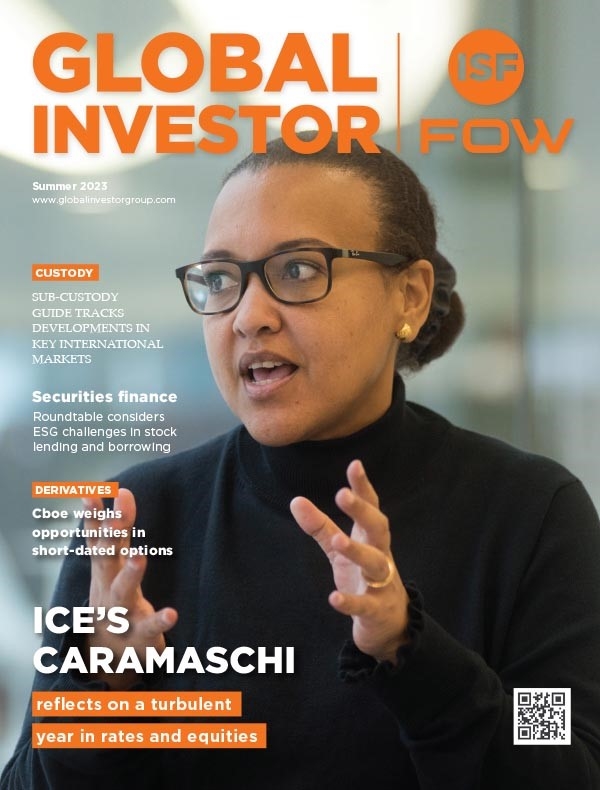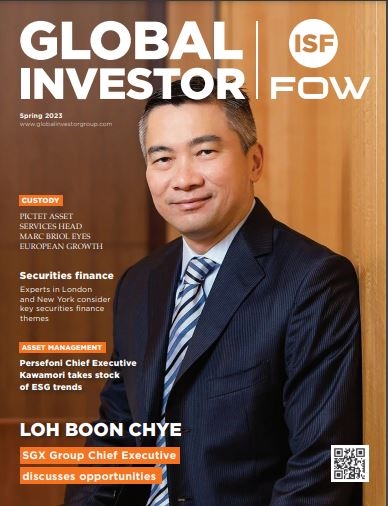Deutsche Bank: Time to change
Deutsche Bank is hoping to work with numerous different types of institution as first port of call for T2S. Can you say some more about which types of institution?
We are working with a diverse range of institutions, from global custodians, investment banks, broker-dealers and asset managers to Central Securities Depositories (CSDs) themselves.
We are helping many institutions who acknowledge the complexity and change in the flow of their business. The new infrastructure developments and regulatory framework is allowing them to reconsider the implications of such and ask themselves whether and where changes need to be made to their business model.
We are working with some institutions that want segregated accounts and others that prefer to be in omnibus accounts, institutions which focus on collateral and/ or liquidity solutions. But Deutsche Bank’s offering takes the form of components so clients can mix and match in any case.
Across the range of institutions we have seen different paces of movement. Among larger buy & sell-side players there is an ongoing rationalisation of their network. For that you are seeing that depth of product functionality is important. T2S has prompted a rethink of the best way to access Europe as a region.
Can you give some examples of how T2S is changing the buy-side’s agent bank relationships?
We can use a live client example to tangibly answer this question: a large Global Custodian recently appointed Deutsche Bank as its sub-custodian for the entire European region. As a global custodian, they took a two-pronged approach. The first prong was a rationalisation of its agent banks required for access to the T2S platform so that they now only have to deal directly with us. The second prong was to analyse the infrastructure and regulatory landscape prevailing on an Account Operator model to meet regulatory obligations.
Regarding the first point, Deutsche Bank has been pre-eminent in European sub-custody for many years, so why not leverage our agent bank network?
Regarding the second point, many of our client organisations such as global custodians have underlying clients. So they have to ask themselves what the view looks like for those clients.
They have to demonstrate to clients that they have done due diligence. In the grand scheme of things beyond T2S, all of us have been on a journey since the Financial Crisis and this kind of transparency is an aspect of the new obligations. Larger organisations such as Deutsche Bank can help because we have the resource capability to not simply offer a product solution but to analyse the impact of regulatory obligations on our clients’ behalf.
Can you evidence Deutsche Bank’s resource capability regarding T2S?
We have been at the forefront of the T2S programme since its inception and a primary driver in its progress in the form of senior engagement and participation on many governance bodies and the Directly Connected Participants working group. We have acted not only in the service of our clients but the sub-custody industry in general.
For clients assessing us as a strategic partner, they can see that we have already delivered against complimentary market initiatives, such as the Single Euro Payments Area. And more generally, there is an increasing reliance nowadays on the Deutsche Banks of this world by clients to shield them from adverse changes and steer them towards market opportunities. In the market place we have a dedicated T2S client-facing team and can advise with subject matter expertise and insights into the greater changing landscape encompassing regulatory dimensions.
Can you tell us something about your selection by Northern Trust?
We have an asset servicing agreement with Northern Trust in place since 2014 where we service the assets while they reside at the CSD. This is a result of the collaborative partnership model at Deutsche Bank where we are also thinking towards liquidity optimisation and what benefits our clients can leverage from an agent bank, CSD and central bank model including collateral mobilisation.
For Northern Trust we are providing domestic subject matter experience. We are partnering with Euroclear to demonstrate the value of our asset servicing expertise with cash liquidity and asset mobility. Northern Trust is also a good example of how our component products can be utilised.
Other clients will take a different combination of components from our range. We compete on some levels with the CSDs and sometimes we collaborate. It’s a fresh way of changing the business model.
We talked to clients about how the changing regulatory landscape in Europe is impacting them, from investor protection to collateral mobility requirements. There appears to be a shift in the direction of greater asset segregation as a means of investor protection. And there is serious discussion among regulators and market participants about greater segregation as a potential contributor to enhanced safety for investors.
This is where we have helped clients – by collaborating with market infrastructures – to provide a solution which meets their collateral requirements as well as their investor protection mandate and asset servicing needs.
Why is T2S so much more than settlement?
As the Northern Trust initiative shows, T2S is causing significant change, which creates opportunities for all institutions. This is because, while T2S requires settlement to move to a standardised platform, Europe does not (yet) have standardised asset servicing. So that puts more demand on subject matter expertise across the platform.
Now when you consider that decision- making process for providers, not just evidenced in the mandates already announced in the market place, the competitive landscape is changing – witness for example the collaboration/competition between banks and CSDs.
Settlement is a commodity service but has demonstrated its importance through different account structures and operating models as we move further down the process chain. But there is a world of difference between a service and a value-add. Deutsche Bank offers the kind of leverage that brings clients the latter.
Is this just a service for the very largest of your clients, ‘the institutions of scale’?
Deutsche Bank offers segregated and omnibus accounts to many institutions, so we service organisations of all sizes. Because our product range is available in components, diverse clients by market share can choose what they need. The products that work for one client might work in a different combination for another.
They have the facility to unbundle different components and this has to be supported from the client perspective. We know this because the way we have built up our service around T2S through a collaborative approach. We have taken a consultative approach, listening to clients. Having said, I would add that there have been different levels of recognition regarding T2S. Institutions have been assessing how benefits can be gained and when they need to execute to gain those benefits.
Can you give more examples of benefits to be gained?
T2S has created opportunities to optimise cash and securities as well as the settlement benefits. Deutsche Bank’s leverage finds how to create a harmonised platform for all these cash operations: intraday and overnight activity. Now collateral can be used in different ways and we deliver contemporary collateral products ourselves. What we aim to achieve is the efficiencies to reduce clients’ liquidity demands.
The sell-side community is a sector that is always interested in optimising its funding obligations. Thanks to T2S, a buy in one Eurozone market can match the value of sells in another in the Eurozone, it is the net effect of a single currency across many securities markets in T2S.
The magnitude of this post-trade settlement is vast. The business opportunities to gain efficiencies are already there. I think we have reached the tipping-point between considering T2S in terms of negative impact and positively leveraging the products available.



